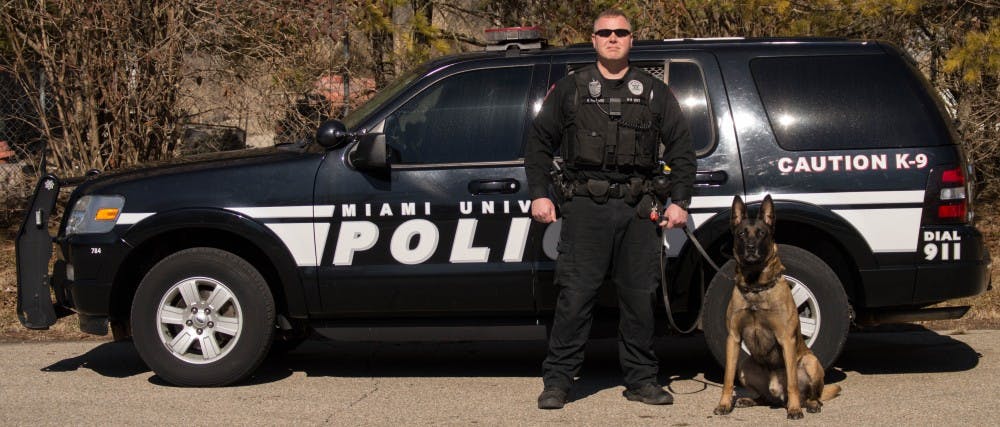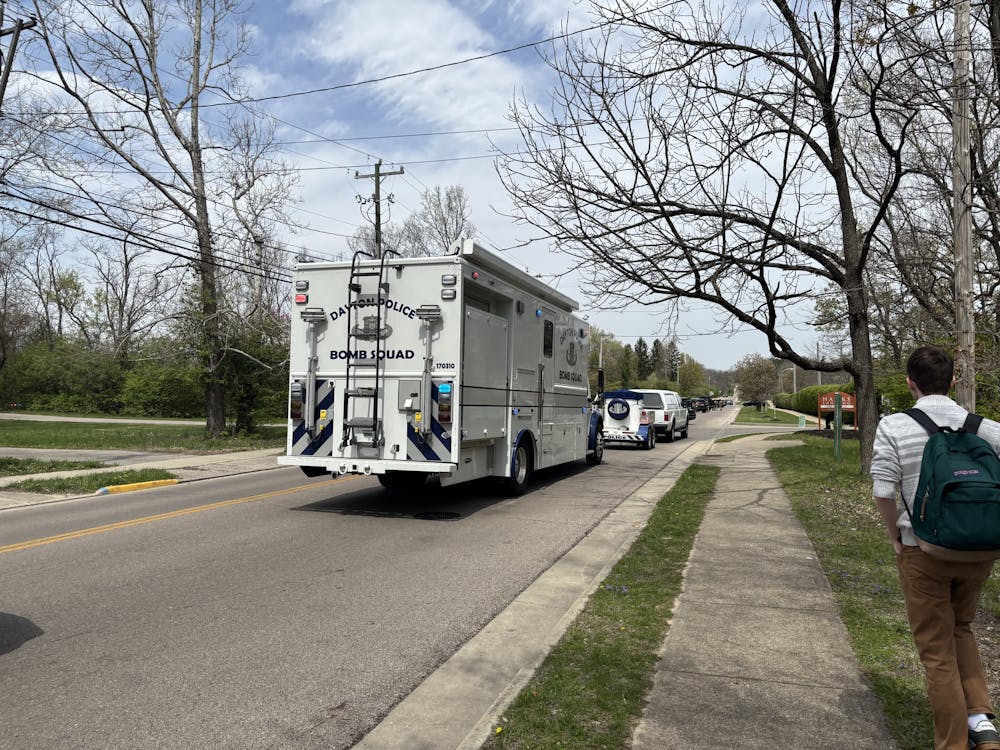In November of 2016, the Oxford Police Department's patrol and narcotics K-9, a German shepherd named Cole, was forced to retire early, prompting a search for a new handler and police dog for the OPD.
After a long selection process, Oxford Police Chief John Jones has confirmed that Officer Matt Hardin will be the next K-9 handler. Jones says that Hardin will be attending training from late June to August.
Sikora says getting a new K-9 is a long, arduous process.
"We usually hope to get about eight years out of them. My last dog only lasted six and a half, he just had some leg issues," said Cole's handler, Sgt. Ryan Sikora.
Sikora completed training with Cole in Middletown, which was a 12 week process.
"However, our new dog that we're getting, we're getting from a place called Shallow Creek Kennels," Sikora said. "These dogs come pre-trained."
The dogs complete initial training for six weeks and are then paired with a handler to train for an additional six weeks. The dogs are then certified and released.
Sikora said the Shallow Creek Kennels import dogs from Europe for the police to purchase. The price for everything -- dog, training and equipment -- is $14,000.
The nose knows
"I've used him for numerous drug searches, tracks, stuff like that. We do a lot of drug searches for the schools," said Sikora of his service with Cole.
MUPD officer Keith Hibbard said having a K-9 unit at the police station provides many benefits to the community as well as the police.
Enjoy what you're reading?
Signup for our newsletter
Hibbard is the handler for MUPD's K-9 unit, a Belgian Malinois named Figo.
"Having a resource like a K-9 unit, a dog's nose is 400 times stronger than a human's nose. So, when it comes to drug eradication or detecting explosives, a dog can do the job so much better than a human can," said Hibbard.
Chief Jones said K-9 units provide officers with invaluable information during a stop or investigation.
"A K-9 gives us that probable cause to search the car, whereas we may not have that without the K-9," says Jones.
A police dog's utility extends beyond criminal investigations, too.
"I think that one of the most important things that a K-9 can do that a lot of people forget about is tracking missing persons," Jones said.
One of the K-9 units once found an elderly man who had gone missing, something that would have been more difficult without a police dog, Jones said.
Crime deterrent, community benefit
Simply having K-9 units out in public can help police officers do their jobs, Hibbard said.
"I think other agencies who have drug dogs and patrol dogs, actively using their dogs out in the public eye, it's a high visibility, and I think it's a great deterrent for crime," he said.
Although being in the public eye has advantages for deterring crime, Hibbard also said there are other benefits to the community.
"A lot of people may not feel comfortable talking to the police, or develop a relationship with the police, but if folks see a dog in the car, that kind of puts them at ease," Hibbard says.
That comfort a dog can provide, he said, can help the police develop a positive relationship with the community.
"I think building those relationships with folks, they understand that the police are here to help them, and now they can put a face with an officer's name, and if they ever have a situation where they need a police officer, they can say 'I know one personally, I've sat and talked to one,'" Hibbard says. "We've broke that barrier down, we've talked to this person, so it's been a huge tool that we use [the K-9] as an icebreaker for community relations."




